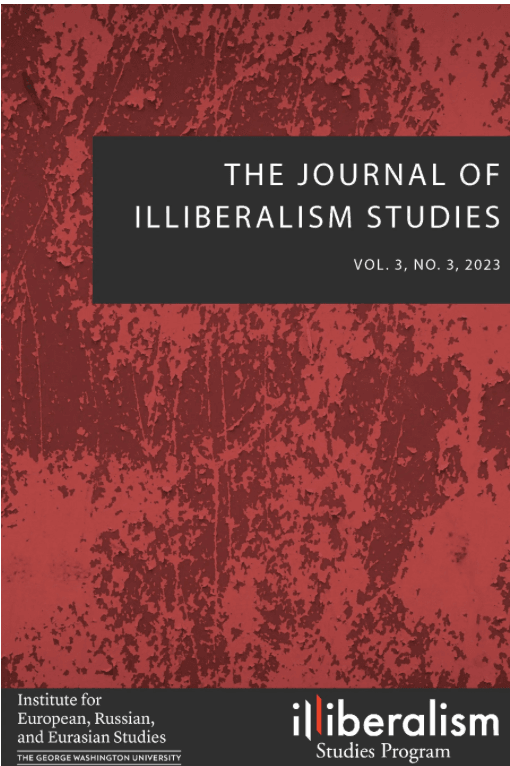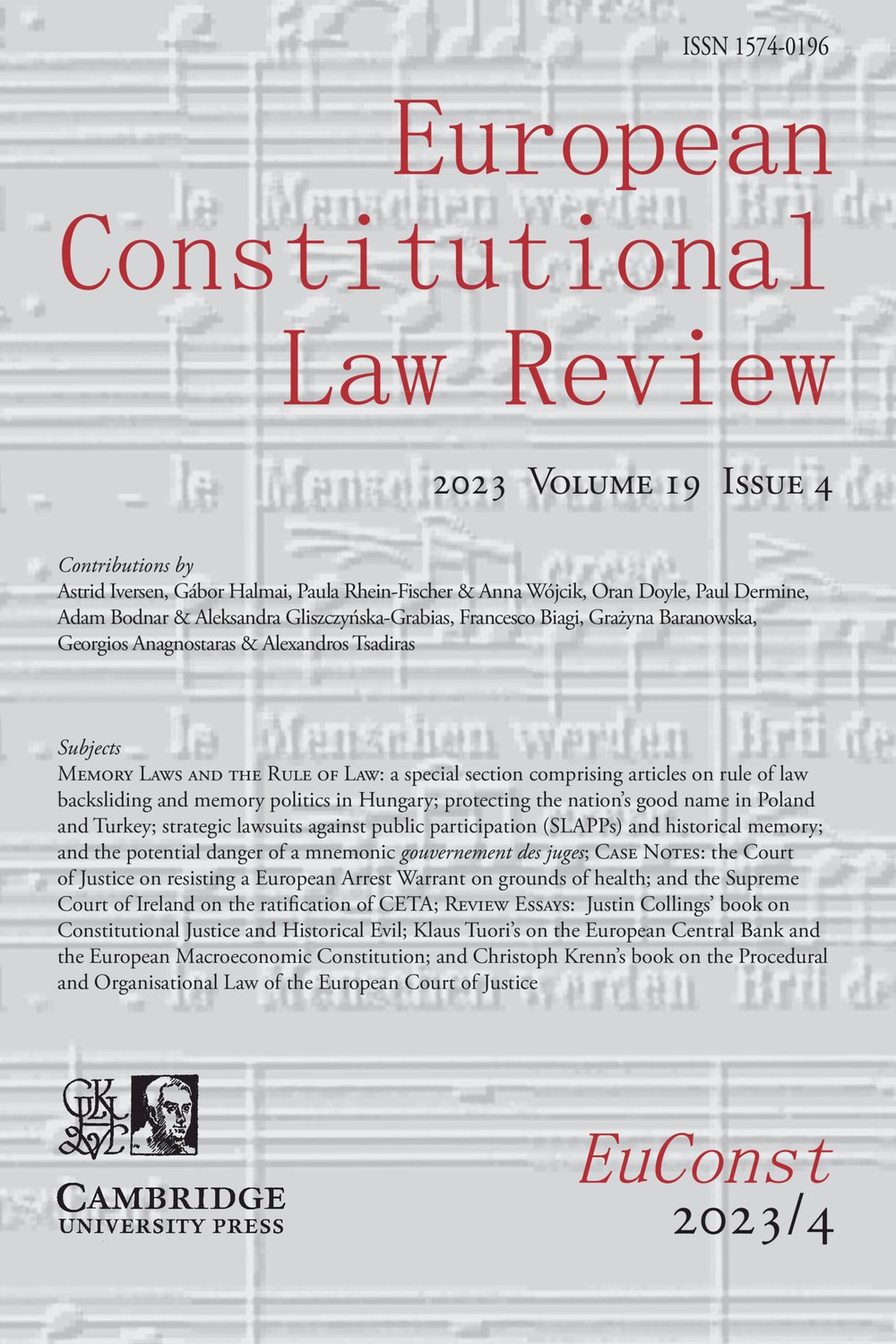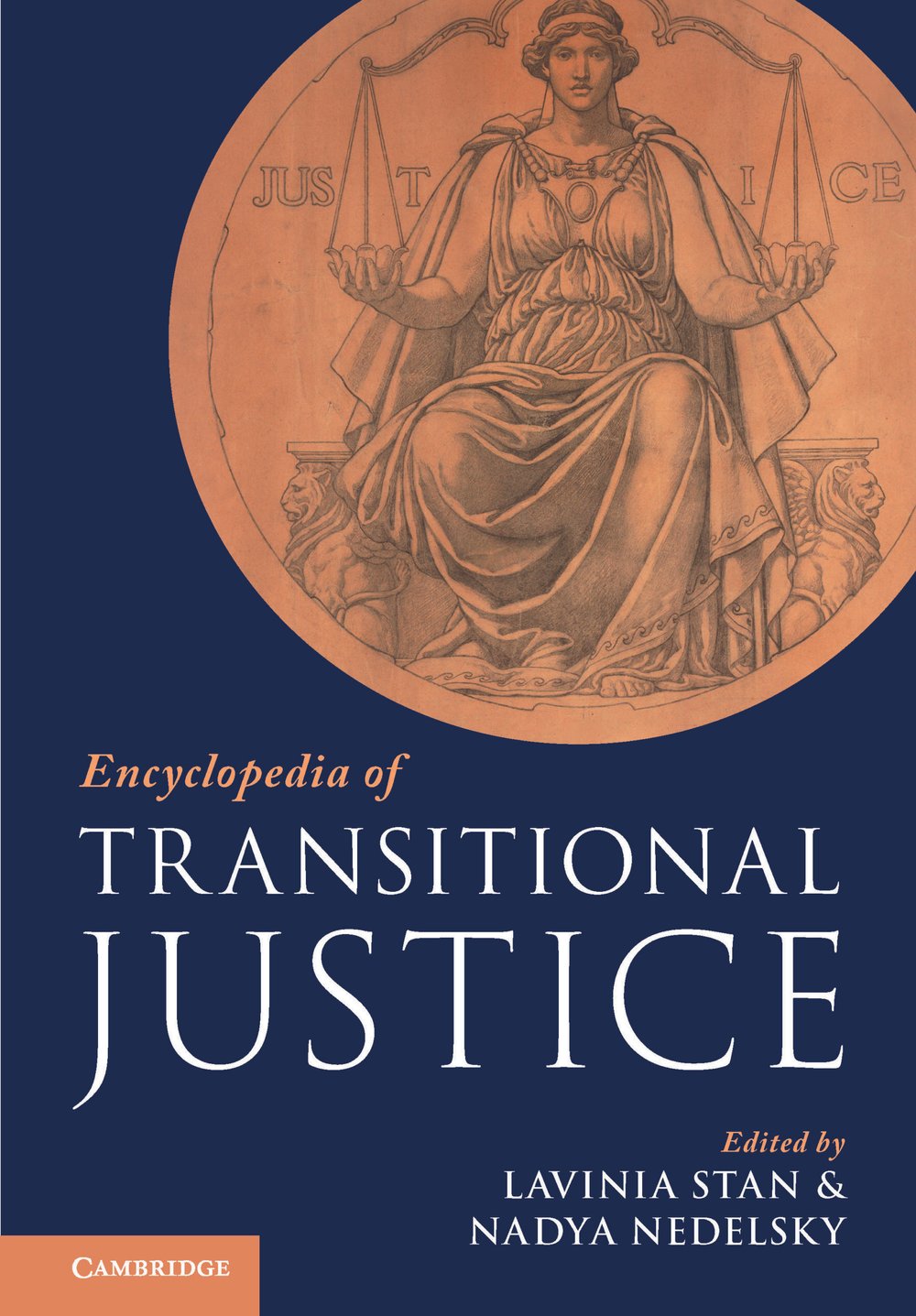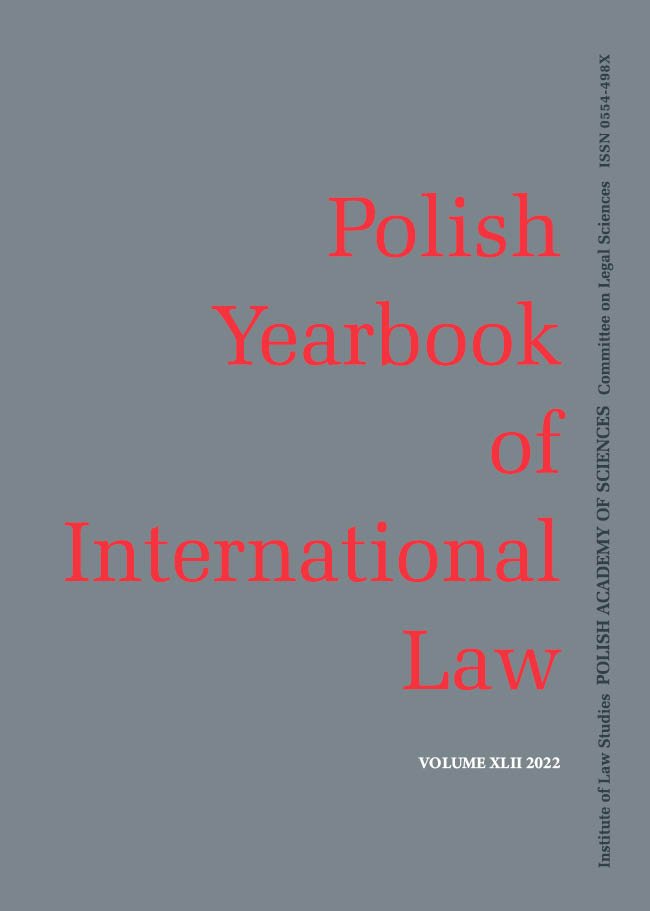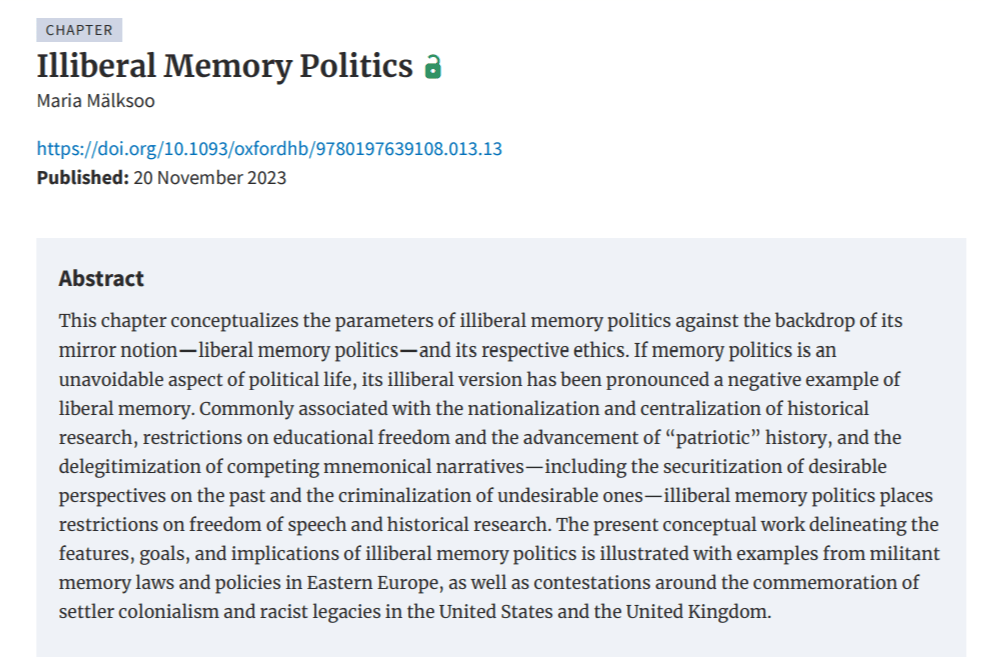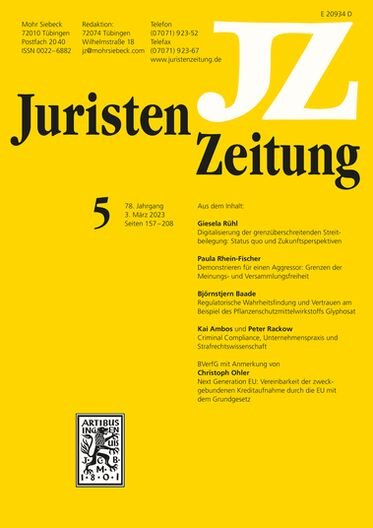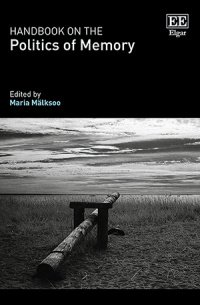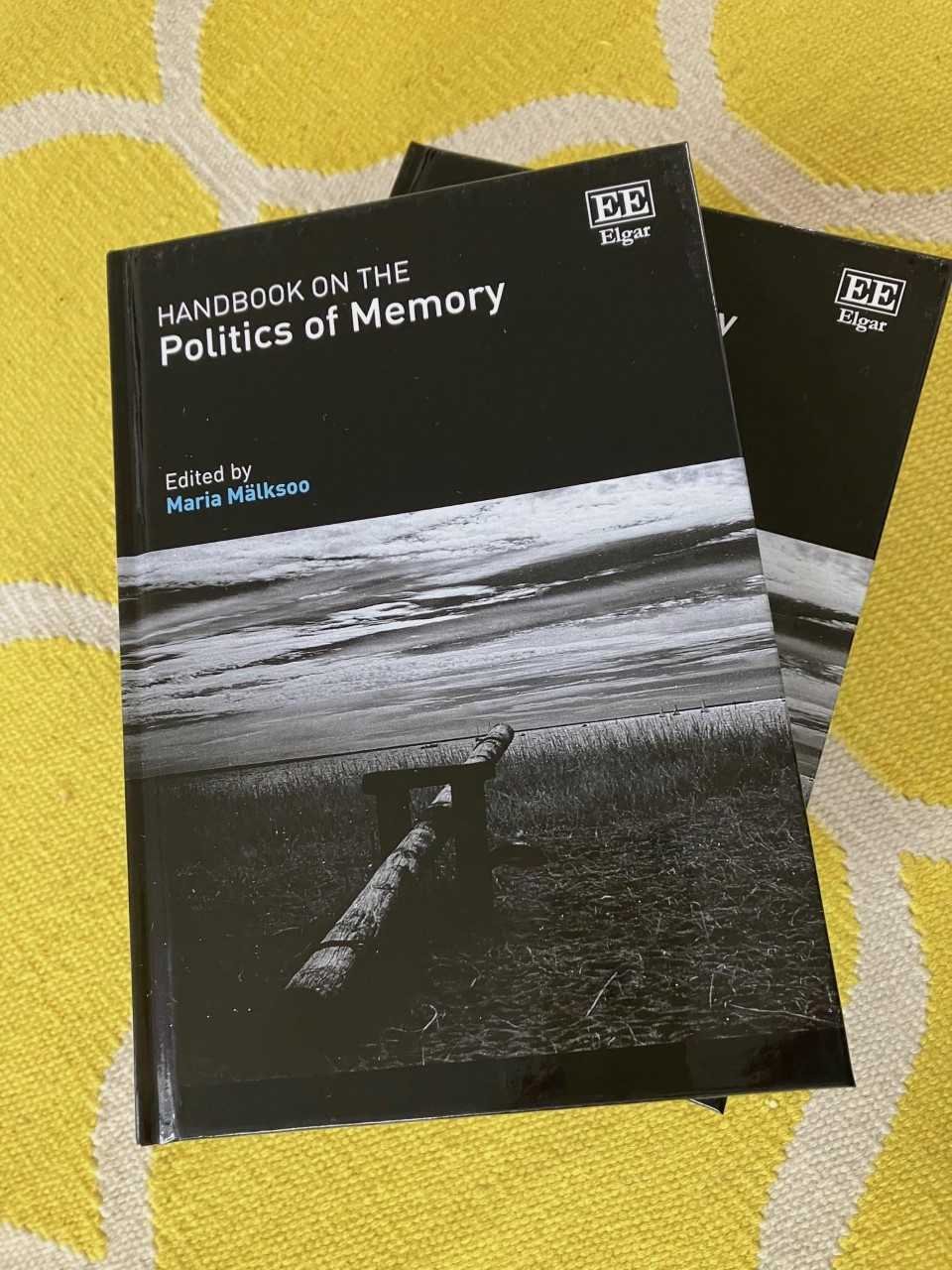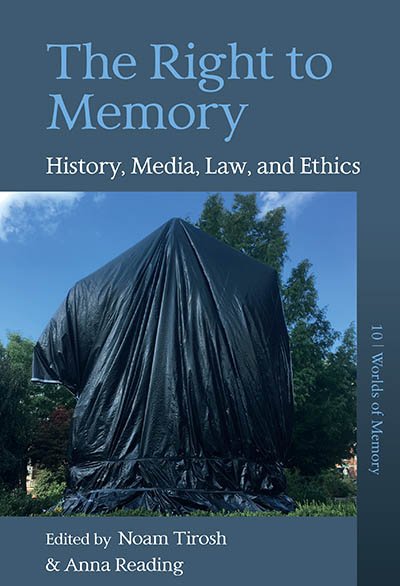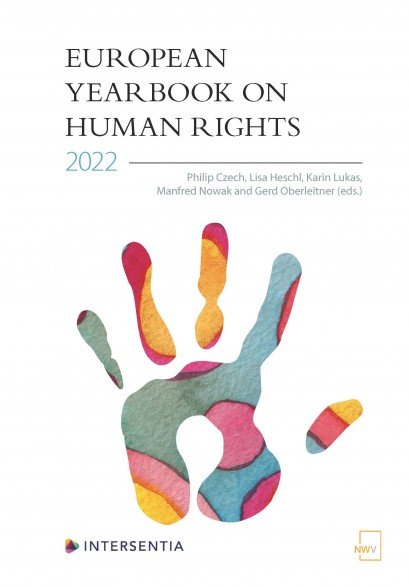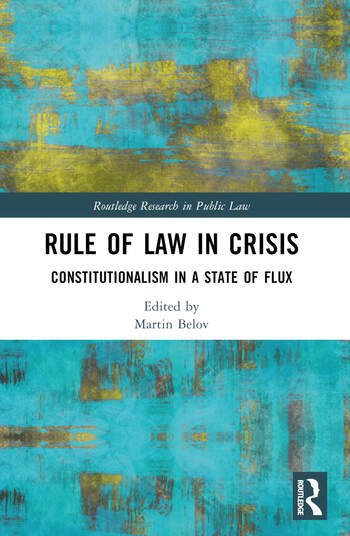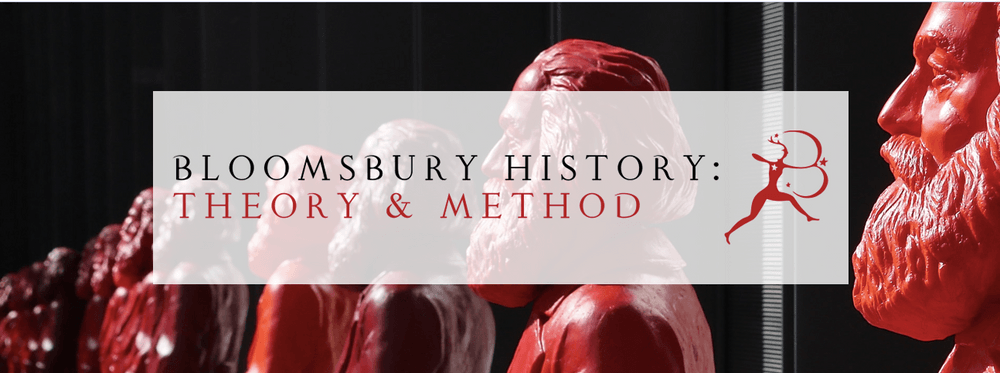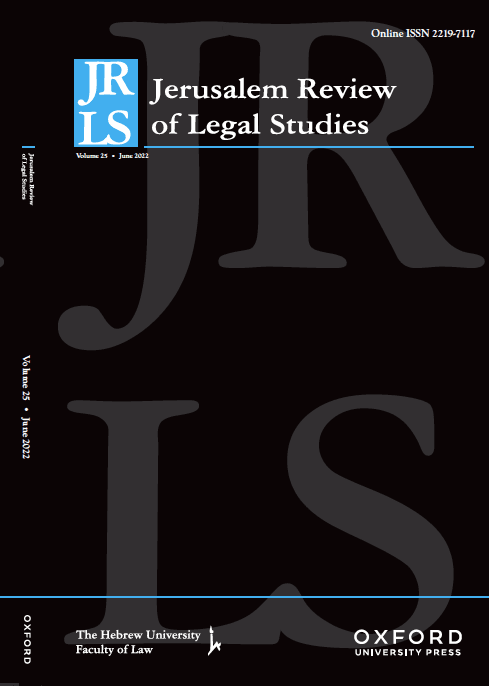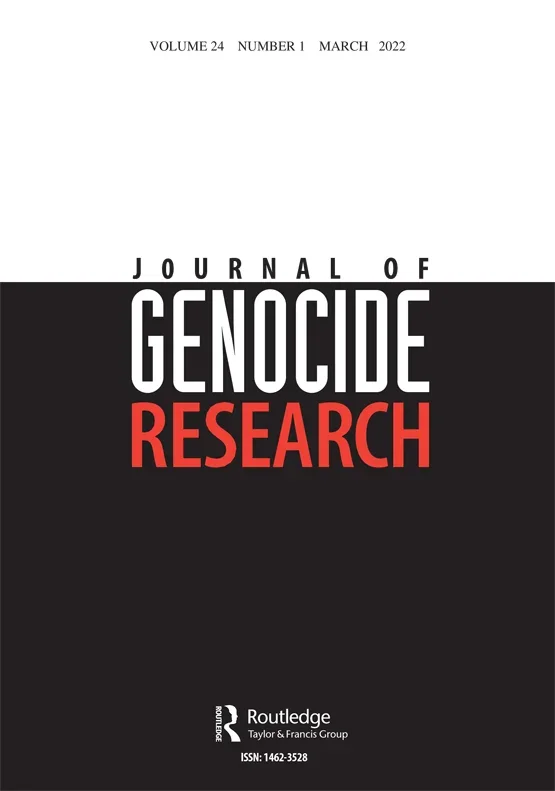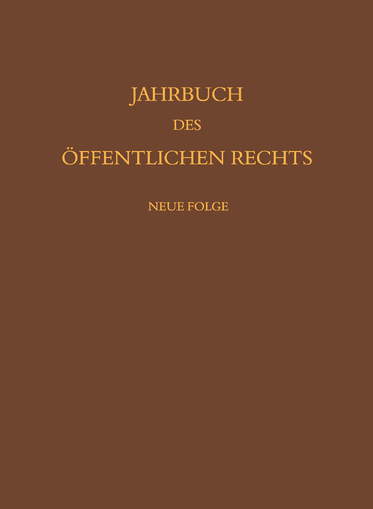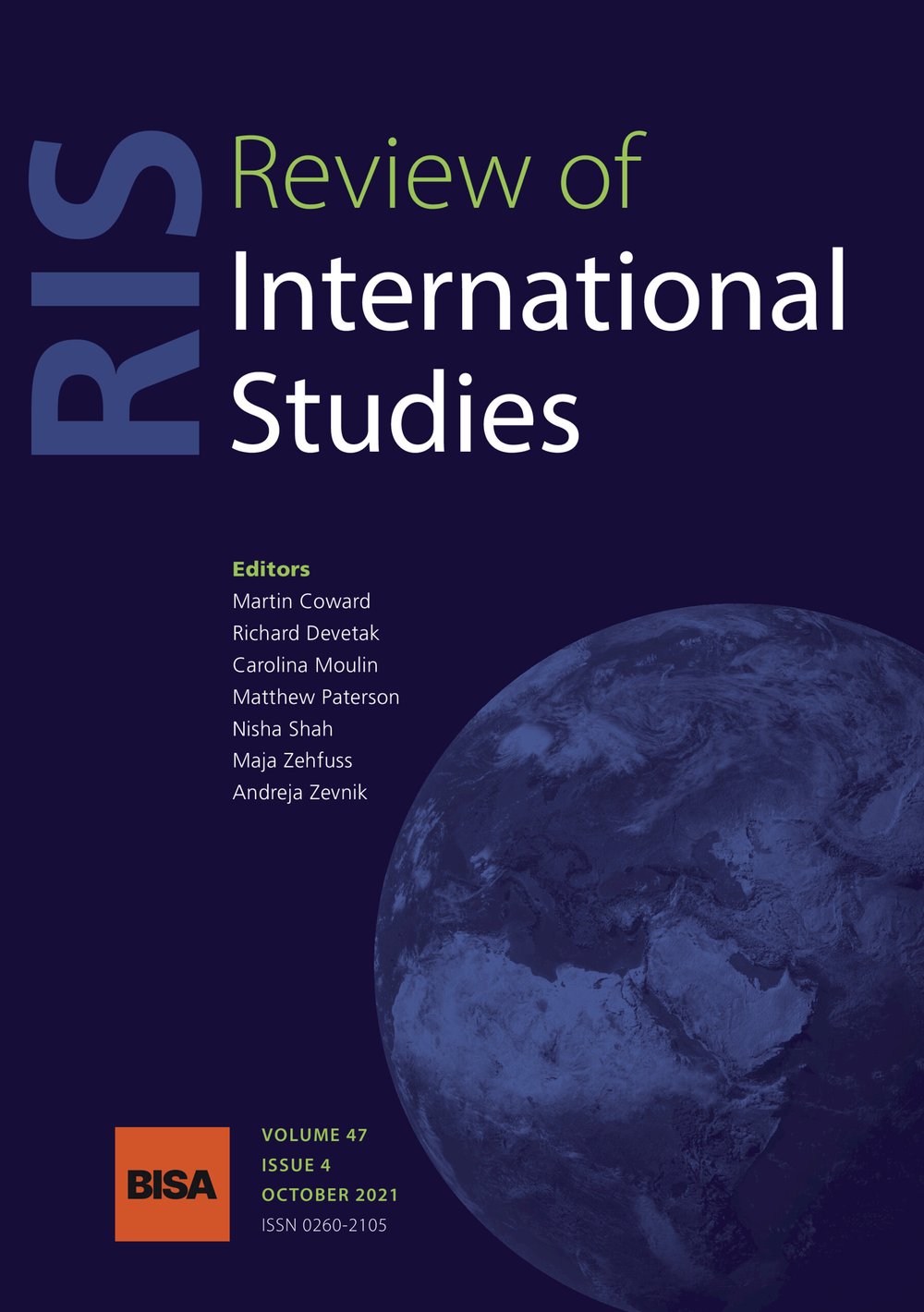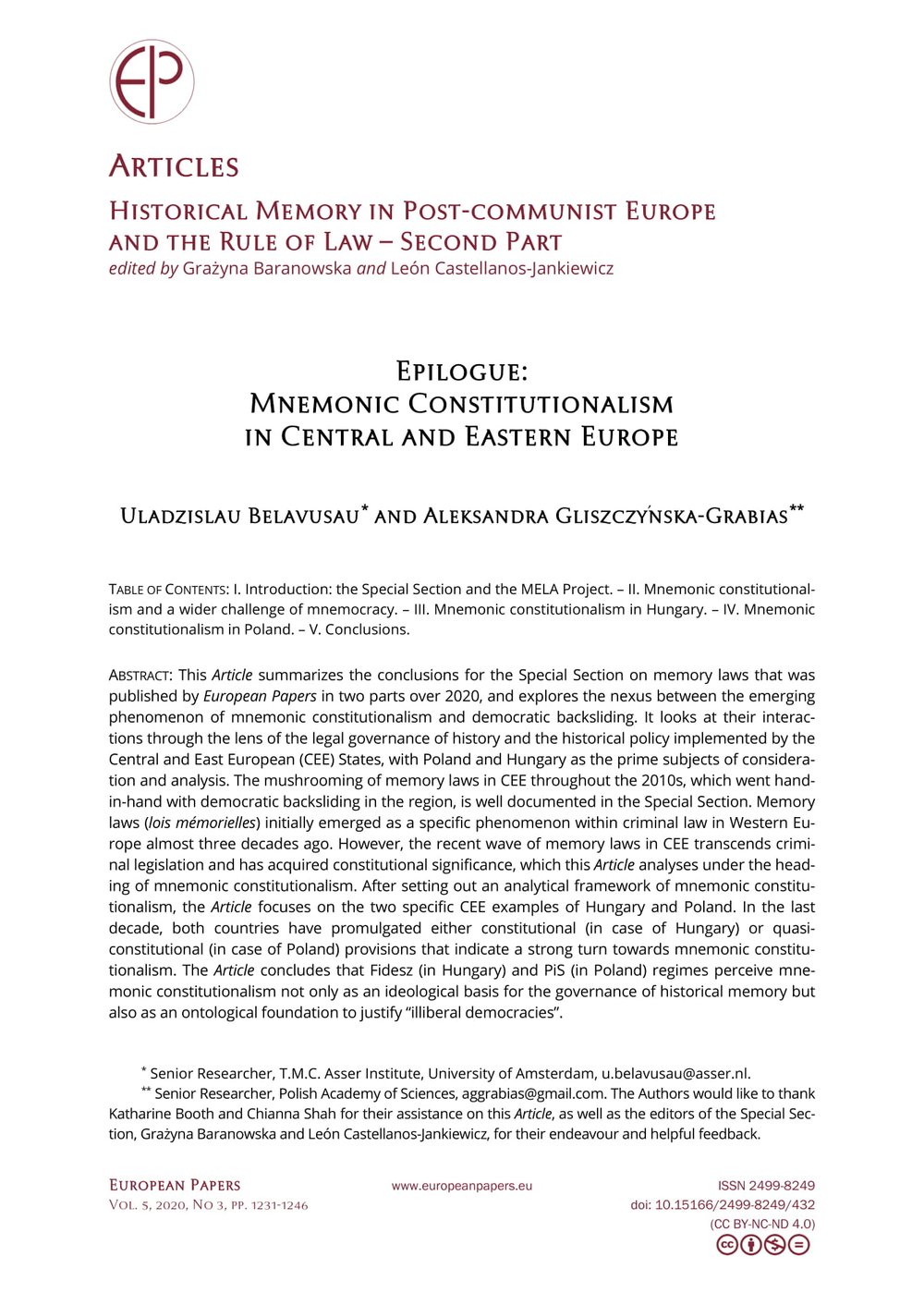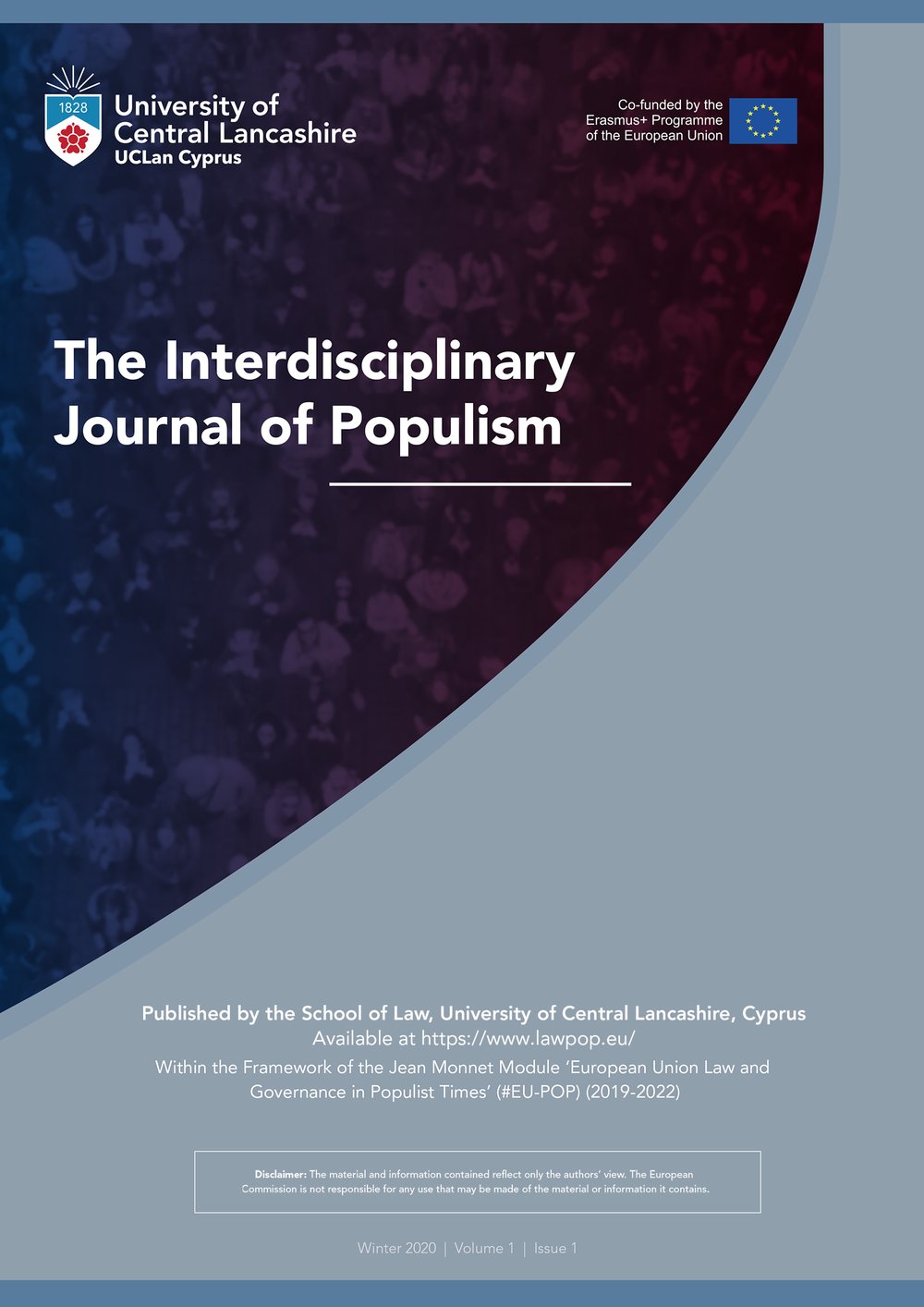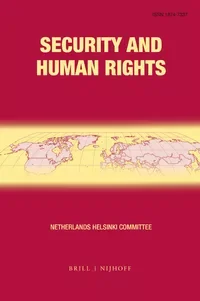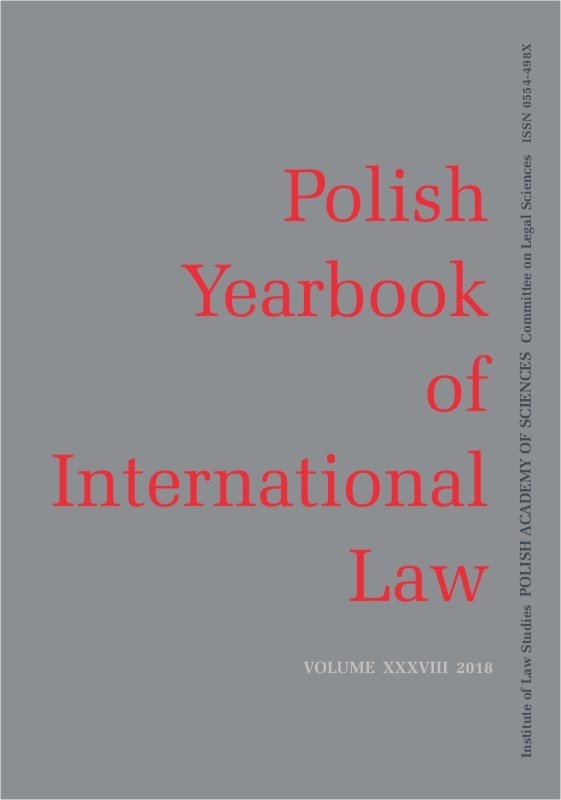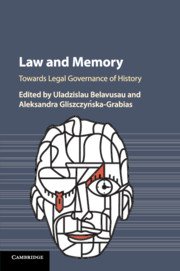
Uladzislau Belavusau, ‘Historical Imagery and Mnemonic Constitutionalism in Belarus’, Review of Central and East European Law, 49, 2024, pp. 324-349.
The Challenge of Populist Memory Politics for Europe: Towards Effective Responses to Militant Legislation on the Past
Uladzislau Belavusau, ‘Historical Imagery and Mnemonic Constitutionalism in Belarus’, Review of Central and East European Law, 49, 2024, pp. 324-349.
Karl Gustafsson and Maria Mälksoo, ‘Memory-Political Deterrence: Shielding Collective Memory and Ontological Security through Dissuasion‘, International Studies Quarterly, 68 (1), 2024, pp. 1-12.
Anna Wójcik, ‘Memory Laws, Rule of Law and Democratic Backsliding: The Case of Poland Memory Laws, Rule of Law, and Democratic Backsliding: The Case of Poland‘, The Journal of Illiberalism Studies, 3 (3), 2023, pp. 71-87.
Anna Wójcik and Paula Rhein-Fischer, ‘The Politicisation of Constitutional Review of Memory Laws’, European Constitutional Law Review, 19 (4), 2023, pp. 664 – 689.
Grażyna Baranowska, ‘Protecting the Good Name of the Nation as Memory Law’, European Constitutional Law Review, 19 (4), 2023, pp. 623 – 641.
Adam Bodnar and Aleksandra Gliszczyńska-Grabias, ‘Strategic Lawsuits against Public Participation (SLAPPs), the Governance of Historical Memory in the Rule of Law Crisis, and the EU Anti-SLAPP Directive’, European Constitutional Law Review, Volume 19, Issue 4, December 2023, pp. 642 – 663.
Anna Wójcik and Paula Rhein-Fischer, Introduction to the Special Section ‘Memory Laws and the Rule of Law, European Constitutional Law Review, Volume 19, Issue 4, December 2023, pp. 591 – 601.
Andrii Nekoliak, ‘Institute of National Memory / Український інститут національної пам’яті (Ukraine)’, in L. Stan and N. Nedelsky (eds.), Encyclopedia of Transitional Justice, Cambridge University Press, 2023, 1346-1351.
Anastasiia Vorobiova, The “Lessons of Nuremberg”: Their Use and Abuse in the Current Russia-Ukraine War, Polish Yearbook of International Law, 42, 2022, pp. 55–82.
Maria Mälksoo, ‘Illiberal Memory Politics‘, Marlène Laruelle (ed.), The Oxford Handbook of Illiberalism, Oxford Handbooks Online, 2023.
Paula Rhein-Fischer, “Demonstrieren für einen Agressor: Grenzen der Meinungs- und Versammlungsfreiheit“ [Demonstrating for an Aggressor: Limits to Freedom of Expression and Assembly], JuristenZeitung, 2023, pp. 167-177.
Uladzislau Belavusau, ‘Law and Politics of Memory’, in Maria Mälksoo (ed.), Handbook on the Politics of Memory, Edward Elger, 2023, 65-80.
Maria Mälksoo (ed.), Handbook on the Politics of Memory, Edward Elgar, 2023.
Aleksandra Gliszczyńska-Grabias and Grażyna Baranowska, “Using and Abusing Memory Laws in Search of “Historical Truth”: The Case of the 2018 Amendments to the Polish Institute of National Remembrance Act“, in N. Tirosh and A. Reading (eds.), The Right to Memory. History, Media, Law, and Ethics, 2023, 112-131.
Paula Rhein-Fischer, “Militant Democracy in the ECtHR Case Law on Genocide Denial Bans“, in P. Czech, L. Heschl, K. Lukas, M. Nowak and G. Oberleitner (eds.), European Yearbook on Human Rights 2022, Intersentia 2022, 483-514.
Uladzislau Belavusau, “Rule of Law and Constitutionalisation of Memory Politics in Hungary and Russia”, in Martin Belov (ed.), Rule of Law in Crisis: Constitutionalism in a State of Flux, Routledge, 2022. 87-107.
Dovilė Sagatienė, The Transformation of Lithuanian Memories of Soviet Crimes to Genocide Recognition, International Journal of Transitional Justice, 16(3), 2022, pp 396–405.
Marina Bán and Uladzislau Belavusau, “Memory Laws“, Bloomsbury History: Theory and Method (2022).
Uladzislau Belavusau, On Ephemeral Memory Politics, Conversationist International Law and (In-)alienable Value of Art in Lucas Lixinski’s Legalized Identities: Cultural Heritage Law and the Shaping of Transitional Justice, Jerusalem Review of Legal Studies, 25(1), 2022, pp.200-211.
Maria Mälksoo, The Postcolonial Moment in Russia’s War Against Ukraine, Journal of Genocide Research, 2022 (online forum).
Uladzislau Belavusau, Aleksandra Gliszczyńska-Grabias, and Maria Mälksoo, Memory Laws and Memory Wars in Poland, Russia and Ukraine, Jahrbuch des öffentlichen Rechts, 69(1), 2021, pp.95-116.
Maria Mälksoo, Militant memocracy in International Relations: Mnemonical status anxiety and memory laws in Eastern Europe, Review of International Studies, 47(4), 2021, pp.489-507.
Uladzislau Belavusau and Aleksandra Gliszczyńska–Grabias, Epilogue: Mnemonic Constitutionalism in Central and Eastern Europe, European Papers, 5(3), 2020, pp.1231-1246.
Uladzislau Belavusau, Mnemonic constitutionalism and rule of Law in Hungary and Russia, Interdisciplinary Journal of Populism, 1(1), 2020, pp.16-29.
Uladzislau Belavusau, The rise of memory laws in Poland: an adequate tool to counter historical disinformation?, Security and Human Rights, 29(1-4), 2-18, pp.36-54.
Aleksandra Gliszczyńska-Grabias, Grażyna Baranowska, and Anna Wójcik, Law secured narratives of the past in Poland in the light of international human rights law standards, Polish Yearbook of International Law, 38, 2018, pp.59-72.
Uladzislau Belavusau and Aleksandra Gliszczyńska-Grabias (Eds.). Law and Memory: Towards Legal Governance of History, Cambridge University Press, 2017.
Memory Laws in European and Comparative Perspective (MELA) research consortium was established in 2016-2019 between the Queen Mary University of London, University of Bologna, T.M.C. Asser Institute, and the Polish Academy of Sciences with the Humanities in the European Research Area (HERA) grant. Dr. Aleksandra-Gliszczyńska-Grabias and Dr. Uladzislau Belavusau, MEMOCRACY principal investigators, were also principal investigators in the MELA project.
MELA’s research output includes:
The Challenge of Populist Memory Politics for Europe:
Towards Effective Responses to Militant Legislation on the Past
Uladzislau Belavusau, ‘Historical Imagery and Mnemonic Constitutionalism in Belarus’, Review of Central and East European Law, 49, 2024, pp. 324-349.
Karl Gustafsson and Maria Mälksoo, ‘Memory-Political Deterrence: Shielding Collective Memory and Ontological Security through Dissuasion‘, International Studies Quarterly, 68 (1), 2024, pp. 1-12.
Anna Wójcik, ‘Memory Laws, Rule of Law and Democratic Backsliding: The Case of Poland Memory Laws, Rule of Law, and Democratic Backsliding: The Case of Poland‘, The Journal of Illiberalism Studies, 3 (3), 2023, pp. 71-87.
Anna Wójcik and Paula Rhein-Fischer, ‘The Politicisation of Constitutional Review of Memory Laws’, European Constitutional Law Review, 19 (4), 2023, pp. 664 – 689.
Grażyna Baranowska, ‘Protecting the Good Name of the Nation as Memory Law’, European Constitutional Law Review, 19 (4), 2023, pp. 623 – 641.
Adam Bodnar and Aleksandra Gliszczyńska-Grabias, ‘Strategic Lawsuits against Public Participation (SLAPPs), the Governance of Historical Memory in the Rule of Law Crisis, and the EU Anti-SLAPP Directive’, European Constitutional Law Review, Volume 19, Issue 4, December 2023, pp. 642 – 663.
Anna Wójcik and Paula Rhein-Fischer, Introduction to the Special Section ‘Memory Laws and the Rule of Law, European Constitutional Law Review, Volume 19, Issue 4, December 2023, pp. 591 – 601.
Andrii Nekoliak, ‘Institute of National Memory / Український інститут національної пам’яті (Ukraine)’, in L. Stan and N. Nedelsky (eds.), Encyclopedia of Transitional Justice, Cambridge University Press, 2023, 1346-1351.
Anastasiia Vorobiova, The “Lessons of Nuremberg”: Their Use and Abuse in the Current Russia-Ukraine War, Polish Yearbook of International Law, 42, 2022, pp. 55–82.
Maria Mälksoo, ‘Illiberal Memory Politics‘, Marlène Laruelle (ed.), The Oxford Handbook of Illiberalism, Oxford Handbooks Online, 2023.
Paula Rhein-Fischer, “Demonstrieren für einen Agressor: Grenzen der Meinungs- und Versammlungsfreiheit“ [Demonstrating for an Aggressor: Limits to Freedom of Expression and Assembly], JuristenZeitung, 2023, pp. 167-177.
Uladzislau Belavusau, ‘Law and Politics of Memory’, in Maria Mälksoo (ed.), Handbook on the Politics of Memory, Edward Elger, 2023, 65-80.
Maria Mälksoo (ed.), Handbook on the Politics of Memory, Edward Elgar, 2023.
Aleksandra Gliszczyńska-Grabias and Grażyna Baranowska, “Using and Abusing Memory Laws in Search of “Historical Truth”: The Case of the 2018 Amendments to the Polish Institute of National Remembrance Act“, in N. Tirosh and A. Reading (eds.), The Right to Memory. History, Media, Law, and Ethics, 2023, 112-131.
Paula Rhein-Fischer, “Militant Democracy in the ECtHR Case Law on Genocide Denial Bans“, in P. Czech, L. Heschl, K. Lukas, M. Nowak and G. Oberleitner (eds.), European Yearbook on Human Rights 2022, Intersentia 2022, 483-514.
Uladzislau Belavusau, “Rule of Law and Constitutionalisation of Memory Politics in Hungary and Russia”, in Martin Belov (ed.), Rule of Law in Crisis: Constitutionalism in a State of Flux, Routledge, 2022. 87-107.
Dovilė Sagatienė, The Transformation of Lithuanian Memories of Soviet Crimes to Genocide Recognition, International Journal of Transitional Justice, 16(3), 2022, pp 396–405.
Marina Bán and Uladzislau Belavusau, “Memory Laws“, Bloomsbury History: Theory and Method (2022).
Uladzislau Belavusau, On Ephemeral Memory Politics, Conversationist International Law and (In-)alienable Value of Art in Lucas Lixinski’s Legalized Identities: Cultural Heritage Law and the Shaping of Transitional Justice, Jerusalem Review of Legal Studies, 25(1), 2022, pp.200-211.
Maria Mälksoo, The Postcolonial Moment in Russia’s War Against Ukraine, Journal of Genocide Research, 2022 (online forum).
Uladzislau Belavusau, Aleksandra Gliszczyńska-Grabias, and Maria Mälksoo, Memory Laws and Memory Wars in Poland, Russia and Ukraine, Jahrbuch des öffentlichen Rechts, 69(1), 2021, pp.95-116.
Maria Mälksoo, Militant memocracy in International Relations: Mnemonical status anxiety and memory laws in Eastern Europe, Review of International Studies, 47(4), 2021, pp.489-507.
Uladzislau Belavusau and Aleksandra Gliszczyńska–Grabias, Epilogue: Mnemonic Constitutionalism in Central and Eastern Europe, European Papers, 5(3), 2020, pp.1231-1246.
Uladzislau Belavusau, Mnemonic constitutionalism and rule of Law in Hungary and Russia, Interdisciplinary Journal of Populism, 1(1), 2020, pp.16-29.
Uladzislau Belavusau, The rise of memory laws in Poland: an adequate tool to counter historical disinformation?, Security and Human Rights, 29(1-4), 2-18, pp.36-54.
Aleksandra Gliszczyńska-Grabias, Grażyna Baranowska, and Anna Wójcik, Law secured narratives of the past in Poland in the light of international human rights law standards, Polish Yearbook of International Law, 38, 2018, pp.59-72.
Uladzislau Belavusau and Aleksandra Gliszczyńska-Grabias (Eds.). Law and Memory: Towards Legal Governance of History, Cambridge University Press, 2017.
Memory Laws in European and Comparative Perspective (MELA) research consortium was established in 2016-2019 between the Queen Mary University of London, University of Bologna, T.M.C. Asser Institute, and the Polish Academy of Sciences with the Humanities in the European Research Area (HERA) grant. Dr. Aleksandra-Gliszczyńska-Grabias and Dr. Uladzislau Belavusau, MEMOCRACY principal investigators, were also principal investigators in the MELA project.
MELA’s research output includes:

